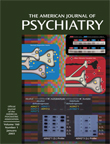As a psychiatrist working in a college community, I have been approached by a number of young adults who report an attention deficit, inability to focus, and problems in concentration. They suggest that these problems began when they started their college-level education. They wonder if they have adult attention deficit hyperactivity disorder (ADHD). I have been reluctant to make this diagnosis in the light of other disorders that were more evident on initial examination that may be comorbid with ADHD. Thus, I was delighted to receive a copy of Dr. Thomas Brown’s new book, Attention-Deficit Disorders and Comorbidities in Children, Adolescents, and Adults. I hoped to find a new source that would shed light on a diagnostic challenge I face on a regular basis. Needless to say, not all of my questions were answered, but many were.
For years the assessment and treatment of ADHD seemed relatively simple: a parent or schoolteacher reported that a child, usually a boy, was disruptive, hyperactive, and impulsive, and the pediatrician made the diagnosis. The child was placed on a regimen of stimulant medications, and parents were informed that the disorder would remit at puberty. However, in the past 10 years clinical experience and research studies have supported a new understanding of this disorder. ADHD is a complex illness that affects not only young boys but also young girls, teenagers, and adults. Its cardinal symptom is not necessarily hyperactivity but, rather, symptoms of inattention resulting in disturbances and impairments across a wide range of cognitive functions, including 1) organizing and activating work, 2) sustaining attention and concentration, 3) sustaining energy and effort for work, 4) managing affective interference, and 5) using and accessing information. Each of these skills can be divided and subdivided into skills critical to the attainment of professional and social success.
In the early chapters of this book the emerging new understanding of attention deficit disorder and comorbid disorders is extensively discussed. Later chapters of the book elaborate on a series of possible comorbid disorders, including mood disorders, anxiety disorders, aggression, obsessive-compulsive disorder, learning disorder, substance disorder, and others. The final chapters of the book are devoted to assessment and intervention for attention deficit disorder and comorbid disorders. Of particular interest are the chapters on cognitive therapy, educational intervention, and new clinical and research perspectives.
This volume is well written. Dr. Brown has done a masterful job in integrating diverse writing styles so that the book does not suffer from the disparities in style often found in a multiauthored volume. The book brings together a knowledgeable group of experts who are at the cutting edge of the information explosion in clinically relevant areas of comorbidity. Although it did not solve my dilemma with regard to an individual patient, it will provide a useful resource for me in the future. It was a welcome addition to my knowledge base in a challenging and interesting area of practice.

